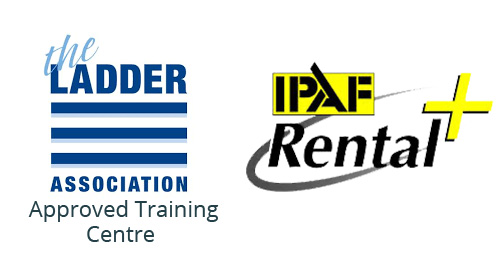COMPETENT ASSESSED PERSONS
The Legislation
LOLER, introduced with PUWER 98 at the end of 1998, first made regular thorough examinations of all lifting equipment a legal requirement. The legislation required that this, previously advisory duty must be carried out by a competent person.
The Work at Height Regulations retain the same duty with specific reference to LOLER. They also extend the general requirement of inspection by a competent person to all equipement used for work at height.
It is against the law to use, or allow to be used, powered access equipment that does not have documented evidence of a thorough examination by a competent person.
Help with Compliance
IPAF has worked closely with the Health and Safety Executive (HSE) for many years to improve the safety of those who work at height. It was the HSE that first suggested it establish training courses for access platform operators. This training now includes demonstrators and instructors on MEWPs (mobile elevating work platforms) and installers, demonstrators and instructors on MCWPs (mast climbing work platforms) and extends to courses covering safety harness use and inspection.
The IPAF Competent Assessed Persons (CAP) Scheme focuses on another crucial aspect of safety - that of the machine itself. It is intended to provide guidance for platform engineers on compliance with regulatory requirements and to offer documented evidence that individuals can be regarded as competent persons to plan, manage or carry out thorough examinations of powered access equipment within the context of current legislation.
The CAP Scheme complements IPAF's operator training courses by extending the promotion of a 'saftey culture' to machine maintenance as well as operation. It uses experienced engineers to provide the orientation and guidance sessions as well as to carry out the assessment that forms a key element of the CAP Scheme.
These experts have spent most of their working lives in design and technical production within the mechanical handling and lifting industries. They are uniquely familiar with all aspects of equipment design and manufacturing technology, its examination, relevant legislative requirements and their interpretation.
The information outlined here is derived from the practical guidance on the resonsibilities and duties of competent persons that is provided to canditates at CAP Orientation and Guidance sessions that precede the assessments.
Who is responsible
Everyone involved, directly or indirectly, in the use of a platform, either a MEWP or an MCWP, carries a responsibility for ensuring that examinations have been carried out. This will include the owner or supplier, which may be a hire company. A; the cross-hirer, which may be a hire company B; the user, who may be a contractor on a site and the site owner, operator or controller. All platforms must carry proof of examination. This may be a sticker identifying the date of the previous examination, when the next one is due and a report reference, or a copy of the Inspection Certificate.
If platforms are used without such confirmatory evidence of examination then everyone involved is liable to prosecution.
There is still a degree of concern over "How competent is'competent'?" and "How thorough is'thorough'?"






Connect with us
Like us on Facebook Join us on Google+